Canada’s only television and radio program dedicated entirely to workplace rights for employees.
The Employment Law Show is Canada’s ONLY TV and radio program focused exclusively on employee workplace rights in Ontario, British Columbia, and Alberta. The show delivers clear, practical answers to real employment law questions—without legal jargon.
Hosted by Lior Samfiru, one of Canada’s most recognized employment lawyers, the Employment Law Show breaks down complex workplace issues so employees understand their rights before they make costly mistakes.
About the Show
Every week, the Employment Law Show tackles the employment law issues that impact non-unionized employees the most, including:
- Severance packages that fall far short of what the law requires
- Wrongful dismissal and terminations for cause
- Workplace harassment and discrimination
- Independent contractor misclassification
- Temporary layoffs and job changes without consent
The show has become a trusted public resource — answering thousands of questions about layoffs, severance, workplace safety, and employee rights during uncertainty times.
If you need legal help with an employment issue, you can contact Lior’s employment law team by calling 1-855-821-5900, emailing help@employmentlawyer.ca, or reaching out online.
Past Episodes
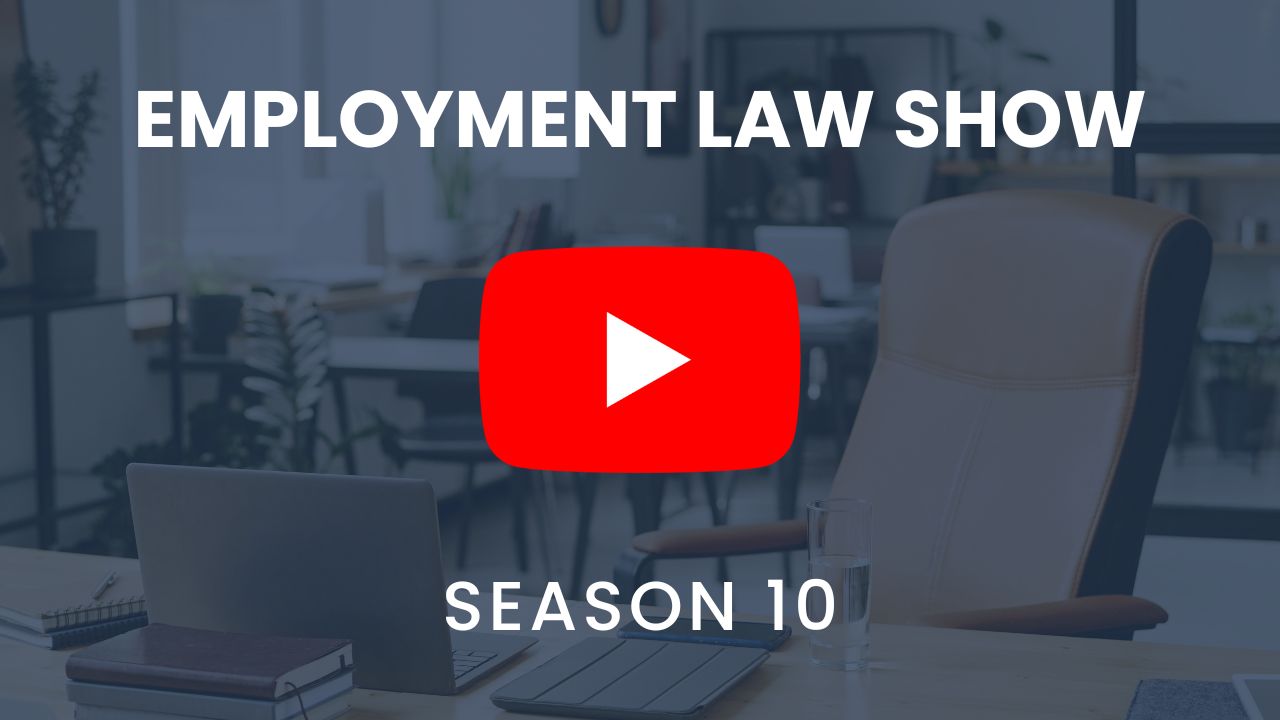 |
||
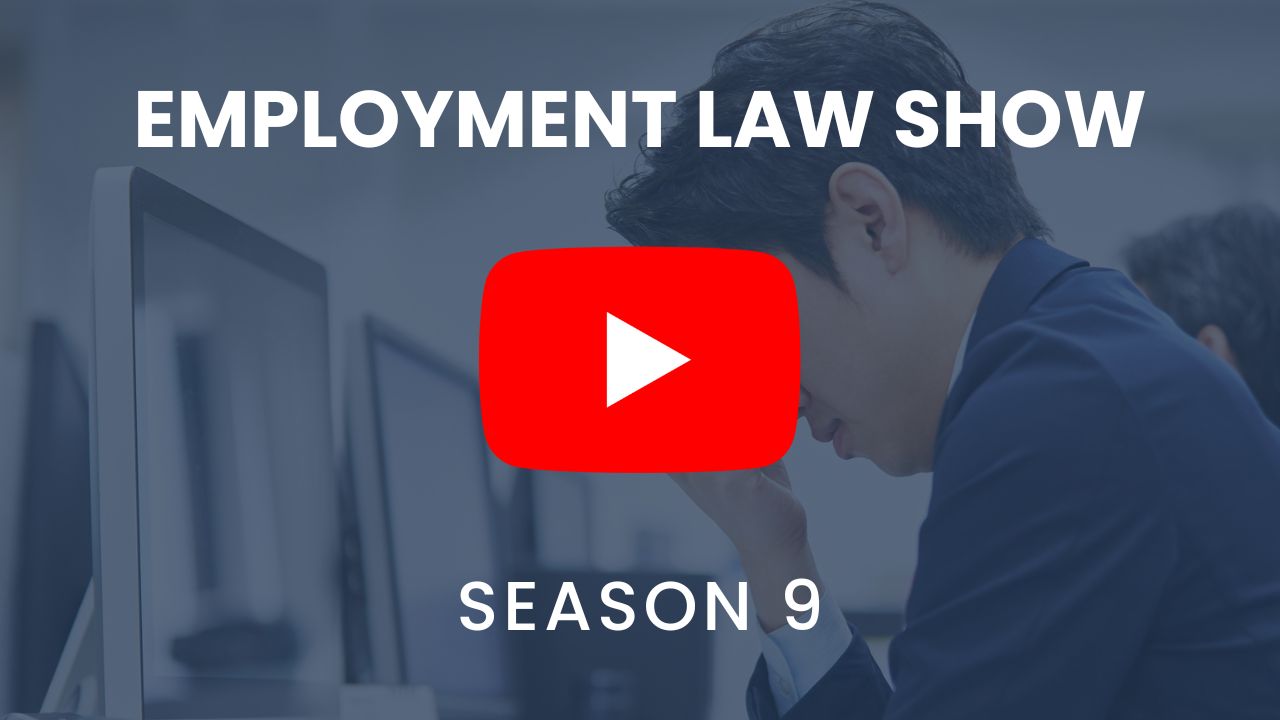 |
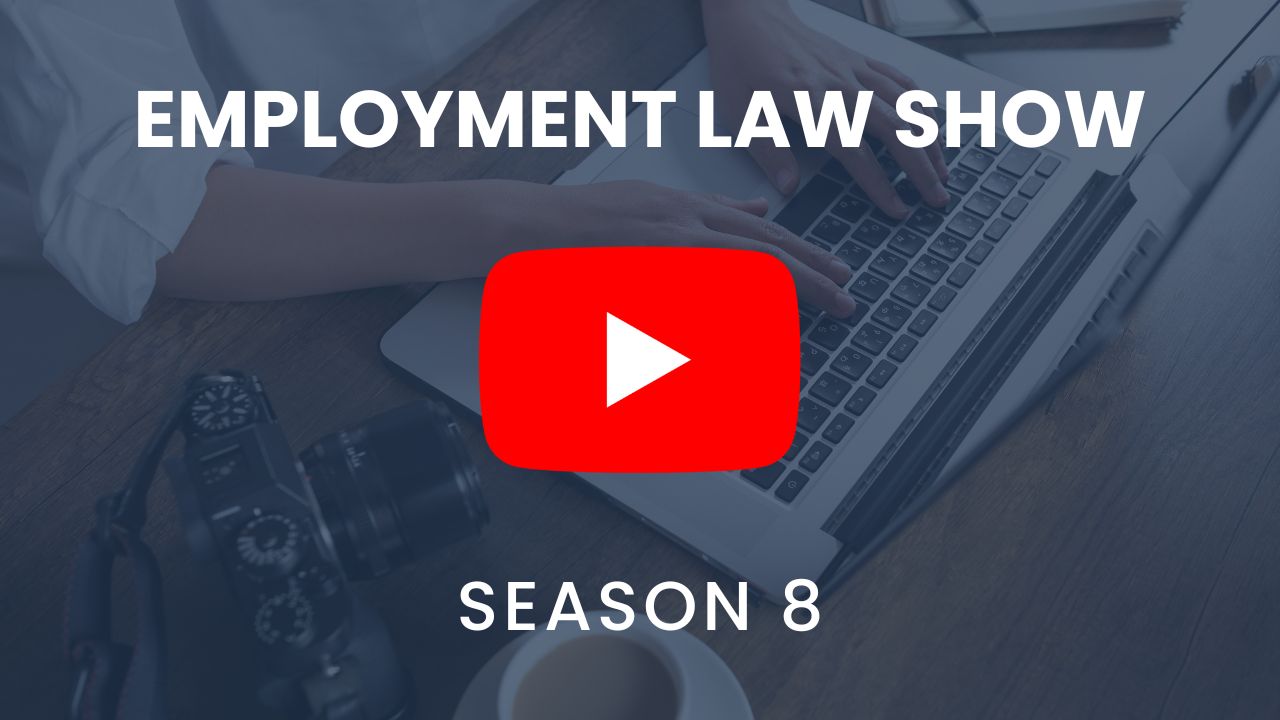 |
 |
 |
 |
 |
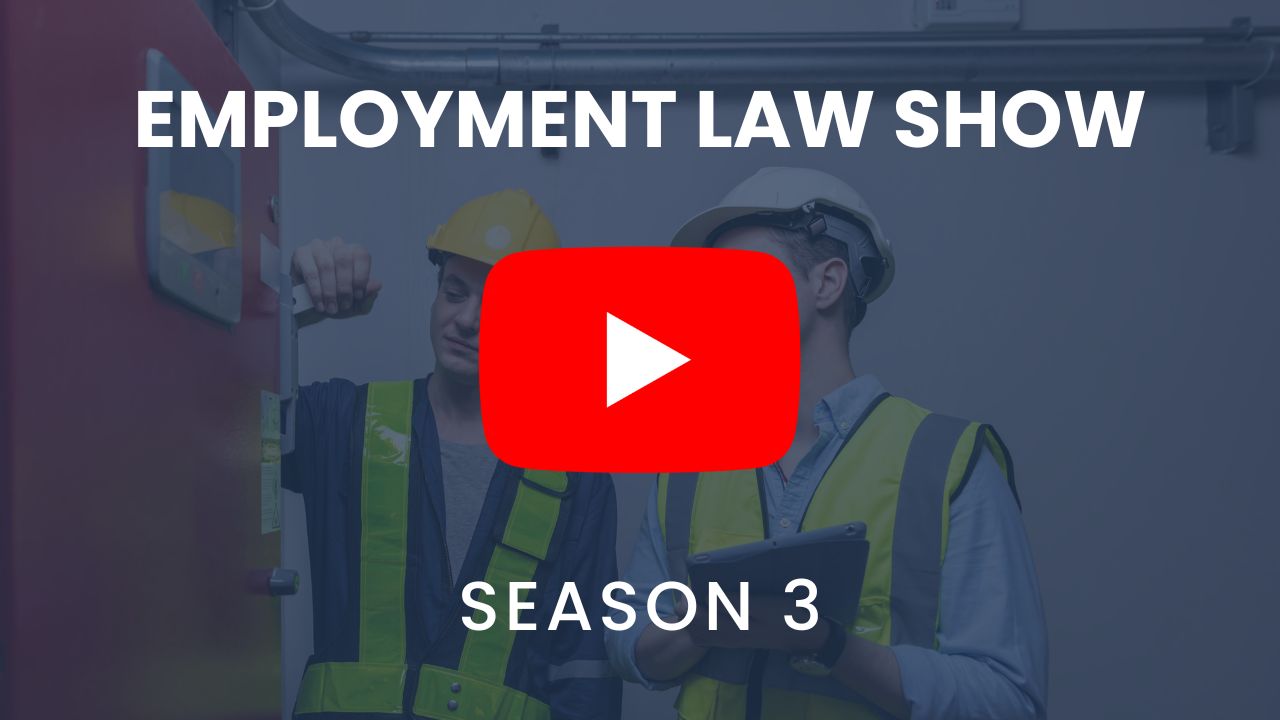 |
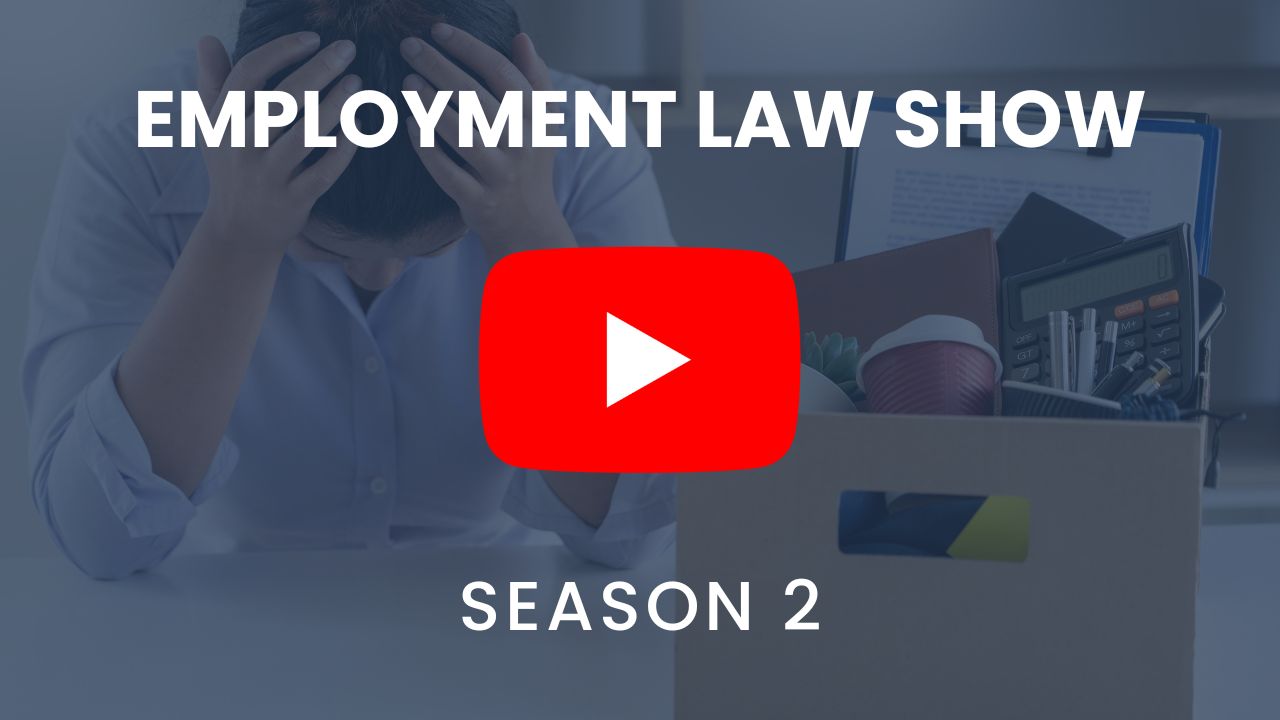 |
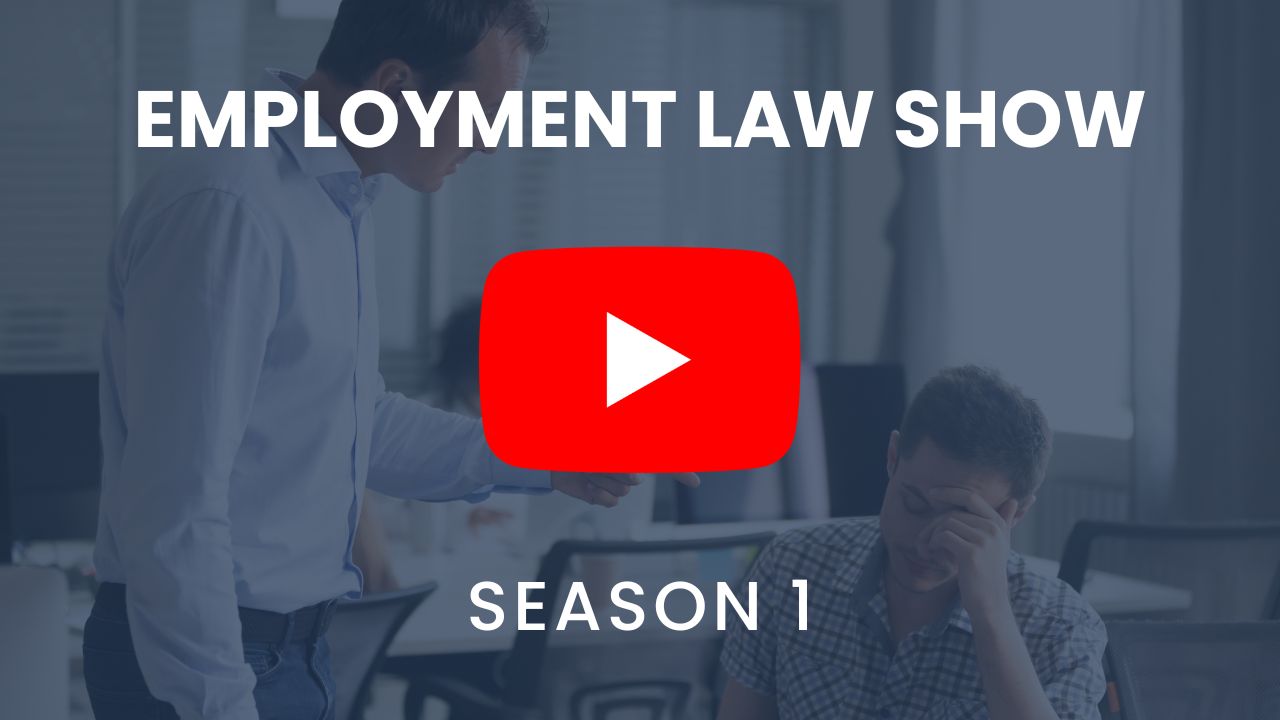 |
Helpful Tools for Employees
Pocket Employment Lawyer
Experiencing a workplace issue? Before speaking to a lawyer, use the Pocket Employment Lawyer to get immediate insight into your workplace rights.
Severance Pay Calculator
Not sure if your severance offer is fair? Use our Severance Pay Calculator to find out how much severance pay you may actually be owed. It’s free, anonymous, and accurate.

Watch on Television
Watch the Employment Law Show on major television networks like Global TV and CTV across Ontario, Alberta, and BC. You can also view recent episodes or subscribe to our YouTube channel to access the full episode library.

Listen on Radio
The Employment Law Show airs on multiple radio stations across Canada. Catch up on past episodes online or listen live in Ontario, as well as Alberta and British Columbia.
Showtimes
When to Watch
Ontario
- Saturdays: 9 a.m. ET on CTV (Toronto & Ottawa) • 10 a.m. ET on Global TV
- Sundays: 9 a.m. ET on Global TV
When to Listen
Ontario
- Mon – Thu: 6:30 p.m. ET on 640 Toronto & 980 CFPL (London)
- Saturdays: 10 a.m. ET on 640 Toronto • 5 p.m. ET on Newstalk 580 CFRA (Ottawa)
- Sundays: 12 p.m. ET on Newstalk 580 CFRA (Ottawa) • 1 p.m. ET on Newstalk 1010 (Toronto)
Employment Law: What You Need to Know
-
Severance Deadlines
There are no 1‑, 2‑, or 5‑day deadlines to accept a severance offer. Most employees have up to two years to pursue full severance entitlements. -
Independent Contractors
Many contractors are misclassified and may still be legally entitled to severance pay.
-
Termination For Cause
Being fired for cause does not automatically eliminate your right to severance. -
“One or Two Weeks per Year” Myth
There is no fixed formula for severance. Entitlements depend on age, position, length of service, and availability of similar work.
Our Cases in the News
Canada’s leading media outlets regularly report on our firm’s employment law cases, including major lawsuits, class actions, and precedent‑setting decisions.

Coventry Homes Sued After Sexual Assault: CTV News Edmonton
An employment lawyer at Samfiru Tumarkin LLP spoke with CTV News Edmonton on the ongoing Coventry lawsuits.

Ontario Labour Ministry Sued Over Misleading Severance Advice
Samfiru Tumarkin LLP sues Ontario’s Ministry of Labour, claiming it gave misleading severance advice to two laid-off workers.

Uber class-action certified by Ontario court, fight for employee rights continues
Toronto, August 12, 2021 – The Ontario Superior Court of Justice has certified Samfiru Tumarkin LLP’s landmark $400-million class-action lawsuit against Uber,…
Comprehensive Services for Employees
Our lawyers represent non‑unionized employees across Ontario, Alberta, and British Columbia. In addition to severance negotiations, we assist with:
- Wrongful dismissal
- Temporary layoffs
- Constructive dismissal
- Workplace harassment and discrimination
- Employment contracts
- Disability and insurance claims
For a complete overview, explore our Law Essentials resource hub.
If you’re dealing with a workplace issue, contact us to get clear advice and understand your legal options before taking action.
Get answers, understand your rights, and take control of your situation.















